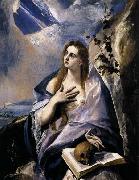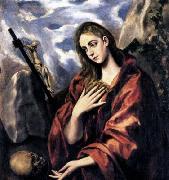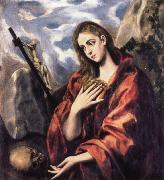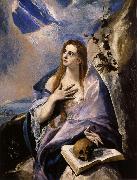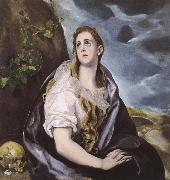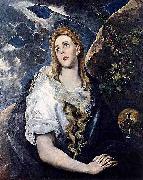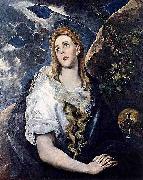Wholesale Oil Painting Reproductions No Minimum and Door to Door! |
|||||||||||
|
|
|||||||||||

|
|||||||||||
|
|
|
||||||||
All GRECO, El Oil Paintings |
||||||||
|
|
||||||||
|
|
||||||||
|
Artist Introduction: Greek-born Spanish Mannerist Painter, 1541-1614
Greek painter, designer and engraver, active in Italy and Spain. One of the most original and interesting painters of 16th-century Europe, he transformed the Byzantine style of his early paintings into another, wholly Western manner. He was active in his native Crete, in Venice and Rome, and, during the second half of his life, in Toledo. He was renowned in his lifetime for his originality and extravagance and provides one of the most curious examples of the oscillations of taste in the evaluation of a painter,
|
||||||||
|
|
||||||||
|
Mary Magdalen in Penitence Painting ID:: 43784 |
1576-78
Oil on canvas,
157 x 121 cm |
|||||||
Height Width |
INS/CM Quality |
|||||||
|
X |
| |||||||
|
|
||||||||
All GRECO, El Oil Paintings |
||||||||
|
|
||||||||
|
|
||||||||
|
Artist Introduction: Greek-born Spanish Mannerist Painter, 1541-1614
Greek painter, designer and engraver, active in Italy and Spain. One of the most original and interesting painters of 16th-century Europe, he transformed the Byzantine style of his early paintings into another, wholly Western manner. He was active in his native Crete, in Venice and Rome, and, during the second half of his life, in Toledo. He was renowned in his lifetime for his originality and extravagance and provides one of the most curious examples of the oscillations of taste in the evaluation of a painter,
|
||||||||
|
|
||||||||
|
|
Mary Magdalen in Penitence Painting ID:: 43797 |
1585-90
Oil on canvas,
109 x 96 cm |
||||||
Height Width |
INS/CM Quality |
|||||||
|
X |
| |||||||
|
|
||||||||
All El Greco Oil Paintings |
||||||||
|
|
||||||||
|
|
||||||||
|
Artist Introduction: Greek-born Spanish Mannerist Painter, 1541-1614
Considered a representative of late Renaissance Spanish art, El Greco was actually born in Greece, on the island of Crete. After studying in Venice under Titian, El Greco settled in Toledo, Spain in 1577. At the time he was wildly popular, his emotionally religious paintings being just the ticket for the hometown of the Spanish Inquisition. After his death his work was largely ignored until the beginning of the 20th century; now he considered one of the inspired geniuses of Western art. His distinctive style features bold shapes and colors, with elongated and slightly distorted figures.
In Toledo El Greco was in constant demand and liked living large: he maintained a private orchestra to accompany his meals. |
||||||||
|
|
||||||||
|
|
Mary Magdalen in Penitence Painting ID:: 53565 |
mk233
1585-1590
oil on canvas
109x96cm
|
||||||
Height Width |
INS/CM Quality |
|||||||
|
X |
| |||||||
|
|
||||||||
All El Greco Oil Paintings |
||||||||
|
|
||||||||
|
|
||||||||
|
Artist Introduction: Greek-born Spanish Mannerist Painter, 1541-1614
Considered a representative of late Renaissance Spanish art, El Greco was actually born in Greece, on the island of Crete. After studying in Venice under Titian, El Greco settled in Toledo, Spain in 1577. At the time he was wildly popular, his emotionally religious paintings being just the ticket for the hometown of the Spanish Inquisition. After his death his work was largely ignored until the beginning of the 20th century; now he considered one of the inspired geniuses of Western art. His distinctive style features bold shapes and colors, with elongated and slightly distorted figures.
In Toledo El Greco was in constant demand and liked living large: he maintained a private orchestra to accompany his meals. |
||||||||
|
|
||||||||
|
|
Mary Magdalen in Penitence Painting ID:: 53567 |
mk233
c.1576
Oil on canvas
164x121cm
|
||||||
Height Width |
INS/CM Quality |
|||||||
|
X |
| |||||||
|
|
||||||||
All El Greco Oil Paintings |
||||||||
|
|
||||||||
|
|
||||||||
|
Artist Introduction: Greek-born Spanish Mannerist Painter, 1541-1614
Considered a representative of late Renaissance Spanish art, El Greco was actually born in Greece, on the island of Crete. After studying in Venice under Titian, El Greco settled in Toledo, Spain in 1577. At the time he was wildly popular, his emotionally religious paintings being just the ticket for the hometown of the Spanish Inquisition. After his death his work was largely ignored until the beginning of the 20th century; now he considered one of the inspired geniuses of Western art. His distinctive style features bold shapes and colors, with elongated and slightly distorted figures.
In Toledo El Greco was in constant demand and liked living large: he maintained a private orchestra to accompany his meals. |
||||||||
|
|
||||||||
|
|
Mary Magdalen in Penitence Painting ID:: 53597 |
mk233
Oil on canvas
108x101.3cm
|
||||||
Height Width |
INS/CM Quality |
|||||||
|
X |
| |||||||
|
|
||||||||
All El Greco Oil Paintings |
||||||||
|
|
||||||||
|
|
||||||||
|
Artist Introduction: Greek-born Spanish Mannerist Painter, 1541-1614
Considered a representative of late Renaissance Spanish art, El Greco was actually born in Greece, on the island of Crete. After studying in Venice under Titian, El Greco settled in Toledo, Spain in 1577. At the time he was wildly popular, his emotionally religious paintings being just the ticket for the hometown of the Spanish Inquisition. After his death his work was largely ignored until the beginning of the 20th century; now he considered one of the inspired geniuses of Western art. His distinctive style features bold shapes and colors, with elongated and slightly distorted figures.
In Toledo El Greco was in constant demand and liked living large: he maintained a private orchestra to accompany his meals. |
||||||||
|
|
||||||||
|
|
Mary Magdalen in Penitence Painting ID:: 72315 |
Mary Magdalen in Penitence (Nelson-Atkins Museum of Art, Kansas City)
Oil on canvas, 108 x 87 cm
cjr |
||||||
Height Width |
INS/CM Quality |
|||||||
|
X |
| |||||||
|
|
||||||||
All El Greco Oil Paintings |
||||||||
|
|
||||||||
|
|
||||||||
|
Artist Introduction: Greek-born Spanish Mannerist Painter, 1541-1614
Considered a representative of late Renaissance Spanish art, El Greco was actually born in Greece, on the island of Crete. After studying in Venice under Titian, El Greco settled in Toledo, Spain in 1577. At the time he was wildly popular, his emotionally religious paintings being just the ticket for the hometown of the Spanish Inquisition. After his death his work was largely ignored until the beginning of the 20th century; now he considered one of the inspired geniuses of Western art. His distinctive style features bold shapes and colors, with elongated and slightly distorted figures.
In Toledo El Greco was in constant demand and liked living large: he maintained a private orchestra to accompany his meals. |
||||||||
|
|
||||||||
|
|
Mary Magdalen in Penitence Painting ID:: 73932 |
Oil on canvas, 108 x 87 cm
Date 1580-85
cyf |
||||||
Height Width |
INS/CM Quality |
|||||||
|
X |
| |||||||
|
|
||||||||
|
Prev Next
|
||||||||
|
|
||||||||
|
Related Paintings to El Greco :. |
||||||||
|
|
||||||||
|
CONTACT US |
